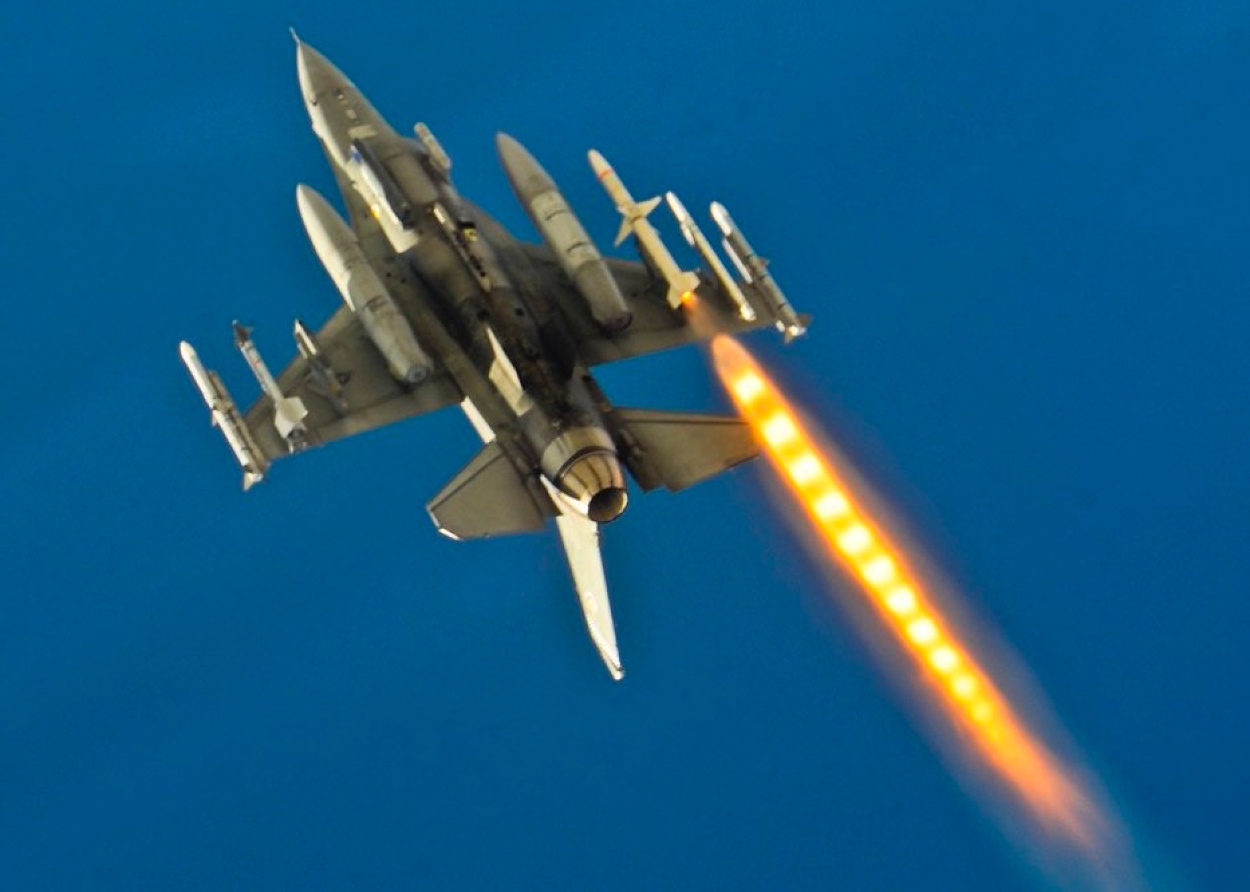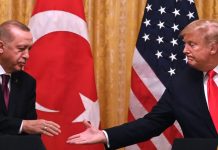The planned $4.7 billion acquisition of Aerojet Rocketdyne (AJRD) by the sixth-ranked US defense contractor L3Harris (LHX) has resulted in a big debate involving the US arms industry.
The principal question raised in the process is whether the merger will further consolidate the stranglehold of the few selected companies in the country, thereby reducing any scope for genuine competition.
In a recent analysis in the EurAsian Times, it was pointed out how the number of defense primes in the US has come down from 51 in the 1990s to just five in 2023 (Lockheed Martin, Northrop Grumman, Boeing, Raytheon, and General Dynamics).
These five companies make most of America’s bombs, missiles, combat aircraft, helicopters, tanks, and other major weapons systems and sell them to the US government.
Such a situation of lack of competition has resulted in a situation in which these five major companies have nearly monopolized the supplies to the Pentagon and dictated their prices.
As a result, the Federal Trade Commission (FTC) is now very particular in approving the mergers of companies that could further limit the number of major players competing in the industry.
Interestingly, earlier, Lockheed Martin had tried to purchase Aerojet, but the FTC had raised serious objections under the ground that it negated “antitrust” rules. Lockheed then abandoned the plan.
This being the background, will the FTC approve Aerojet’s merger with L3Harris?
As it is, some US Senators are against the move and have written to the FTC to block the deal.
Sen. Elizabeth Warren, D-Mass., who opposed Lockheed’s acquisition of Aerojet, similarly opposes L3Harris’ purchase because it would reduce competition in the defense industry.
In essence, those who oppose the deal say that its blockage by the FTC is necessary as it will potentially prevent further consolidation. In the process, the blockage would encourage new market entrants, thereby strengthening the defense industrial base of the United States.
The American strategic elites now realize the dangers of overreliance on select companies for weapons and platforms, with increasing pressures on the US supply chain because of the war in Ukraine. There is a lack of suppliers for the quantum and quality of arms needed.
There are reports of problems in ramping up the supply of critical products, including missiles, of which 90% are supplied by three companies. Lockheed Martin and Raytheon produce HIMARS, Javelin, and HARMs, but they cannot meet the demands of the day because of their limited production. It is felt that this problem is being exacerbated by industry consolidation and the resultant lack of competition.

As things stand now, L3Harris (LHX) has certified substantial compliance with the Federal Trade Commission related to its planned $4.7 billion acquisition of Aerojet. Aerojet has also certified compliance with the FTC’s second request in late May.
Apparently, Aerojet (AJRD) and L3Harris (LHX) had received a request for a more in-depth review from the FTC in March.
The second request had come after the FTC filed a lawsuit in January 2022 to block Lockheed Martin’s (LMT) $4.4 billion purchase of Aerojet (AJRD) due to antitrust concerns. Lockheed terminated the deal in February last year.
L3Harris (LHX) Chief Financial Officer Michelle Turner has reportedly said that the company is on track to certify compliance by the end of this month (June), which would set a 30-day clock for the FTC to review. It is hoped that the deal will eventually come through this year.
Incidentally, the proposed merger is expected to have a soothing impact on producing large solid rocket motors, known as SRMs.
These motors depend on solid fuels rather than liquid fuels and thus enable more stability during the propulsion. And they are considered safe to store for years in submarines, missile silos, and other confined spaces. The SRMs are crucial for America’s “triad” of nuclear weapons and military satellites into high orbits.
At present, two American companies produce solid rocket motors. These are Northrop Grumman and Aerojet. But the irony here is that Northrop is so big that it is said to have gradually eclipsed Aerojet by becoming the sole supplier of large SRMs for most military and civil programs.

Aerojet’s capacity is virtually limited to supplying motors for one stage of the military’s next-generation ICBM. Even this opportunity is because of the benevolence of Northrop Grumman; it has invited Aerojet to join its ICBM team!
Thus, at a time when Northrop Grumman dominates the domestic market for large solid rocket motors, Aerojet cannot survive for long with a narrow slice of the market, it is said.
“Against that backdrop, the L3Harris bid to merge with Aerojet is a godsend for a Pentagon seeking to preserve competition in large SRMs. L3Harris is an electronics company with no role in building missiles or space boosters. Thus, absorbing Aerojet would raise no antitrust issues, either horizontally or vertically, in the industry’s structure,” argues strategic analyst Loren Thompson.
“Allowing L3Harris to merge with Aerojet is the best available solution to preserve competition in the marketplace. Without the resources provided by L3Harris, Aerojet Rocketdyne would be hard-pressed to keep up with the challenge posed by Northrop’s rocket-motor business”, Thompson further argues by citing how L3Harris has a distinguished record in supporting other military contractors as a merchant supplier without any attempts to leverage its market position to play favorites.
Thompson contends that the resulting combination of L3Harris and Aerojet would create an enterprise big enough to invest and innovate in rocket motors without threatening the current competitive landscape.
“Aerojet management has decided that it needs a partner to thrive in the future. Its approach to L3Harris was predicated on the assumption that the partner should be in the defense business but raise no antitrust concerns.”
Now, it is up to the FTC whether such arguments are convincing or not.
- Author and veteran journalist Prakash Nanda is Chairman of the Editorial Board – EurAsian Times and has been commenting on politics, foreign policy, on strategic affairs for nearly three decades. A former National Fellow of the Indian Council for Historical Research and recipient of the Seoul Peace Prize Scholarship, he is also a Distinguished Fellow at the Institute of Peace and Conflict Studies.
- CONTACT: prakash.nanda (at) hotmail.com
- Follow EurAsian Times on Google News




